
 Flash News
Flash News
Accident at "Shkalla e Tujanit", truck overturns in the middle of the road, driver injured
Vlora by-pass, work delays and cost increases
Milan are expected to give up on the transfer of Granit Xhaka
Inceneratori jashtë funksionit, përfshihet nga flakët fusha e mbetjeve në Elbasan
Accident on the Lezhë-Shëngjin axis, one injured
The final text of the draft resolution on the genocide in Srebrenica is drawn up
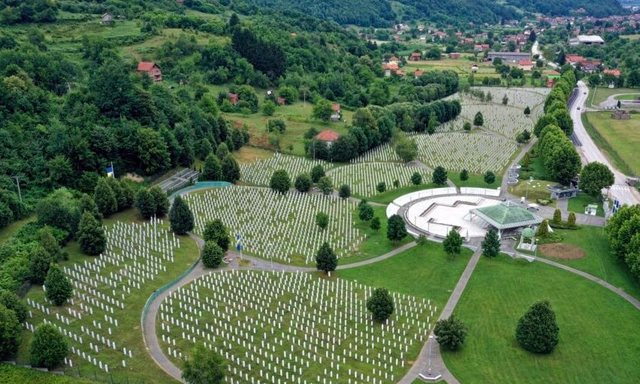
A resolution commemorating the 1995 genocide in Bosnia's Srebrenica, drafted by Germany and Rwanda, is expected to be put to a vote on May 23 at the United Nations General Assembly, amid a strong campaign of opposition from Serbia's president and leaders of Bosnian Serbs, with the support of Russia.
According to the final text of the draft resolution, July 11 is designated as the "International Day of Reflection and Remembrance of the 1995 Genocide in Srebrenica", in memory of the killing of over 8,000 Bosnian men and boys by Serbian forces in the massacre that began on July 11, 1995.
On that day, the Bosnian Serbs occupied Srebrenica, which had been declared a protected area by the United Nations.
What does the draft resolution on the genocide in Srebrenica contain?
In the text of the draft resolution, which has been seen by VOA, it is said, among other things, that noting that the year 2025 will mark the thirtieth anniversary of the genocide in Srebrenica, in which at least 8,372 people lost their lives, thousands were displaced and families and communities were destroyed, the UN General Assembly:
1. Decides to designate 11 July as the International Day of Reflection and Remembrance of the 1995 Srebrenica Genocide, to be celebrated annually;
2. Unreservedly condemns any denial of the Srebrenica genocide as a historical event and calls on member states to preserve the established facts also through their educational systems, developing appropriate programs, also in commemoration (of the events) and with the aim of prevention denying and distorting them as well as preventing genocides in the future;
3. It also unreservedly condemns actions that glorify those convicted of war crimes, crimes against humanity and genocide by international courts, including those responsible for the genocide in Srebrenica;
4. Emphasizes the importance of completing the process of finding and identifying the remaining victims of the Srebrenica genocide and giving them a dignified burial, and calls for the continued prosecution of those perpetrators of the Srebrenica genocide who have not yet been brought to justice;
5. Urges all states to fully comply with their obligations under the Convention on the Prevention and Punishment of the Crime of Genocide, and customary international law on the prevention and punishment of genocide, bearing in mind the relevant decisions of the International Court of Justice;
6. Kërkon nga Sekretari i Përgjithshëm të themelojë një program informues të titulluar “Gjenocidi i Srebrenicës dhe Kombet e Bashkuara”, duke filluar përgatitjet për shënimin e përvjetorit të tridhjetë në vitin 2025, dhe gjithashtu i kërkon Sekretarit të Përgjithshëm të sjellë këtë rezolutë në vëmendjen e të gjitha shteteve anëtare, organizatave të sistemit të Kombeve të Bashkuara dhe organizatave të shoqërisë civile, në funksion të respektimit të duhur të saj;
7. Fton të gjitha Shtetet Anëtare, organizatat e sistemit të Kombeve të Bashkuara, organizatat e tjera ndërkombëtare dhe rajonale dhe shoqërinë civile, duke përfshirë organizatat joqeveritare, institucionet akademike dhe palët e tjera të interesuara për të respektuar Ditën Ndërkombëtare, duke përfshirë kremtime dhe veprimtari të veçanta në kujtim dhe nderim të viktimave të gjenocidit të vitit 1995 në Srebrenicë, si dhe arsimimin e duhur dhe veprimtaritë e ndërgjegjësimit të publikut.
Nëvitin 2007 Gjykata Ndërkombëtare e Drejtësisë, tha se aktet e kryera në Srebrenicë paraqesin gjenocid. Ky ishte gjenocidi i parë në Evropë që nga Holokausti nazist në Luftën e Dytë Botërore, gjatë të cilit u vranë rreth 6 milionë hebrenj dhe pjesëtarë të pakicave të tjera.
Udhëheqësi politik i serbëve të Bosnjës gjatë kohës së luftës, Radovan Karaxhiç dhe komandanti i tij ushtarak, Ratko Mlladiç, u dënuan me burgim të përjetshëm për gjenocidin në Srebrenicë nga Gjykata për Krime Lufte në ish Jugosllavi. Në përgjithësi, kjo gjykatë si dhe gjykatat në Ballkan kanë dënuar afër 50 zyrtarë serbë të Bosnjës të kohës së luftës me burgime të gjata lidhur me gjenocidin në Srebrenicë.
Presidenti i Serbisë Aleksandar Vuçiq si dhe udhëheqësit e serbëve të Bosnjës, kundërshtojnë me forcë miratimin e rezolutës, duke thënë se ajo i cilëson të gjithë serbët si një “komb gjenocidal”, ndonëse projektrezoluta nuk e përfshinë një pohim të tillë.
Presidenti Vuçiç dhe qeveria e tij kanë bërë fushatë si në OKB ashtu edhe në vendet në zhvillim për të fituar mbështetje në kundërshtim të rezolutës, miratimi i së cilës kërkon shumicën e thjeshtë.
Misioni i Përhershëm i Serbisë në OKB, bëri thirrje sërish për tërheqjen e projektrezolutës.
“Duke pasur parasysh pasojat e paparashikueshme të një projektrezolute të tillë në procesin e brishtë të pajtimit, duke hapur plagë të vjetra, u bëjmë thirrje edhe një herë bashkëhartuesve të tërheqin tekstin e rezolutës, në interes të të gjithëve, para së gjithash popullit të Bosnjës e Hercegovinës por edhe të gjithë anëtarëve të OKB-së…”, në një deklaratë të Misionit të Përhershëm të Serbisë në OKB.
Presidenti Vuçiç si dhe udhëheqësi i serbëve të Bosnjës Milorad Dodik, kanë përmendur disa herë mundësinë e pagesës së dëmeve të luftës, nëse rezoluta miratohet.
Udhëheqësit serbë vazhdojnë të minimizojnë apo edhe mohojnë gjenocidin në Srebrenicë, duke i cilësuar vrasjet si një krim të rëndë, gjë që ka ofenduar thellësisht të afërmit e viktimave të masakrës dhe të mbijetuarit.
The issue of the resolution was also outlined during a regular meeting of the UN Security Council on political and economic developments in Bosnia, which was held on Wednesday.
The US deputy ambassador to the UN, Robert Wood, said that "(Milorad) Dodik's dangerous actions and his divisive rhetoric threaten peace and stability in the region" and "genocide denial also prevents reconciliation".
"Commemorating historical truths and accepting facts is important and moves the region forward on the road to reconciliation," said Mr. Wood, underlining that "honoring the victims of genocide reinforces the values reflected in the UN Charter."
But Russia's ambassador to the UN, Vassily Nebenzia, whose country maintains strong ties with Serbia and the Bosnian Serbs, said that presenting the resolution without the consent of all parties in Bosnia is a violation of the country's constitution and the Dayton peace accord. of 1995, which ended the war.
"We see this provocative text as a threat to peace and security in the country and the entire region," he said, accusing Germany and Rwanda of fomenting protests instead of promoting reconciliation.
Germany and Rwanda said earlier in the week that the resolution aims at unification and not division, while calling on all UN member states to support it "thus sending a strong message of remembrance and against denial of the genocide". VOA
Latest news








Golem and Qerret without water at the peak of the tourist season
2025-07-01 21:09:32

Euractiv: Italy-Albania migrant deal faces biggest legal challenge yet
2025-07-01 20:53:38
BIRN: Brataj and Fevziu victims of a 'deepfake' on Facebook
2025-07-01 20:44:00

Vlora by-pass, work delays and cost increases
2025-07-01 20:24:29



Milan are expected to give up on the transfer of Granit Xhaka
2025-07-01 19:41:25

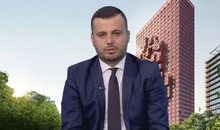
The silent but rapid fading of the towers' euphoria
2025-07-01 18:58:07
Donald Trump's daughter says 'goodbye' to June with photos from Vlora
2025-07-01 18:48:47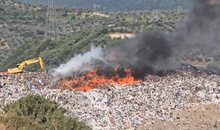

Tirana vote recount, Alimehmeti: CEC defended manipulation
2025-07-01 18:15:05

Left Flamurtari, striker signs with another Albanian club
2025-07-01 17:43:14
Accident on the Lezhë-Shëngjin axis, one injured
2025-07-01 17:19:35
June temperature records, Italy limits outdoor work
2025-07-01 17:03:15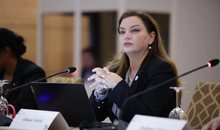

Meet Kozeta Miliku, named one of the top five scientists in Canada
2025-07-01 16:32:12
"Arsonist" arrested for repeatedly setting fires in Vlora (NAME)
2025-07-01 16:29:45

The ecological integrity of the Vjosa River risks remaining on paper
2025-07-01 16:09:40
Heat Headache/ Causes, Symptoms and Measures You Should Take
2025-07-01 16:01:13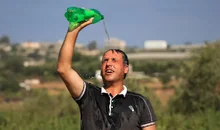
UN: The world must learn to live with heat waves
2025-07-01 15:54:50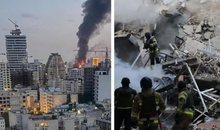

Three cars collide in Tirana, one of them catches fire
2025-07-01 15:38:16
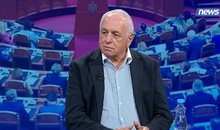
Shehu: Whoever doesn't want Berisha, doesn't want the opposition 'war'!
2025-07-01 15:19:20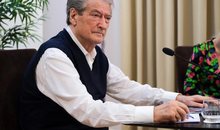
Berisha requests the OSCE Assembly: Help my nation vote freely
2025-07-01 15:11:46
Be careful with medications: Some of them can harm your sex life
2025-07-01 15:00:32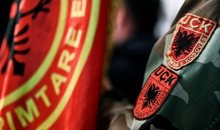
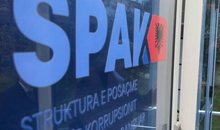
'Golden Bullet'/ Lawyers leave the courtroom, Altin Ndoc's trial postponed again
2025-07-01 14:44:52
EU changes leadership, Kosovo in a number of places
2025-07-01 14:40:01
Should we drink a lot of water? Experts are surprised: You risk hyponatremia
2025-07-01 14:30:20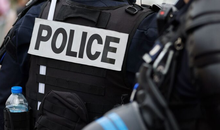



Lëpusha beyond Rama's postcards: A village that is being silently abandoned
2025-07-01 13:41:56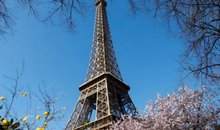
Scorching temperatures in France close the Eiffel Tower
2025-07-01 13:29:35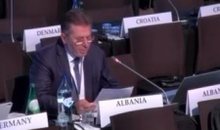
Media: China, Iran and North Korea, a threat to European security
2025-07-01 13:20:12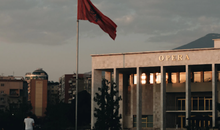
Albania drops in global index: Less calm, more insecure
2025-07-01 13:09:35
Road collapses, 5 villages in Martanesh risk being isolated
2025-07-01 13:03:04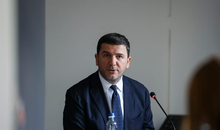

Këlliçi: Opposition action to be decided in September
2025-07-01 12:48:49
Four tips for coping with the heat wave
2025-07-01 12:38:53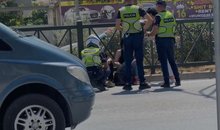
Car hits pedestrian on Transbalkan road
2025-07-01 12:27:09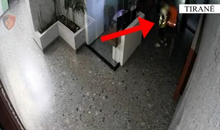
Authors of 9 robberies, Erjon Sopoti and Abdullah Zyberi arrested
2025-07-01 12:15:56

He abused his minor daughter, this is a 36-year-old man in custody in Fier
2025-07-01 11:50:34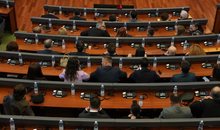
The constitution of the Kosovo Assembly fails for the 40th time
2025-07-01 11:40:08



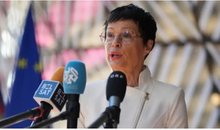
EU confirms support for the Western Balkans
2025-07-01 10:50:45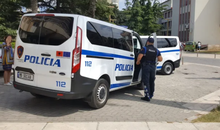
Serious in Fier! Father sexually abuses his minor daughter
2025-07-01 10:32:33
One year since the passing of the colossus of Albanian literature, Ismail Kadare
2025-07-01 10:25:26

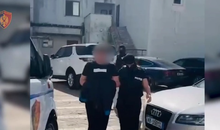
They supplied the 'spaçators' with drugs, two young men are arrested in Tirana
2025-07-01 09:54:09
Europe is "scorching", how dangerous are high temperatures?
2025-07-01 09:48:56

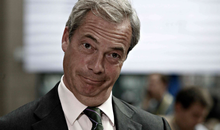
Nigel Farage in Albania: but why?
2025-07-01 09:13:12
Xama: The "Partizani" dossier is quite weak and without facts!
2025-07-01 09:04:47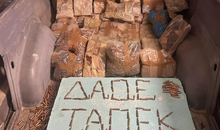

Foreign exchange, the rate at which foreign currencies are sold and bought
2025-07-01 08:35:39
Fabricators again warn of factory closures and job cuts
2025-07-01 08:21:30
Horoscope, what do the stars have in store for you today?
2025-07-01 08:08:59
Scorching hot, temperatures reaching 40°C
2025-07-01 07:57:12
Morning Post/ In 2 lines: What mattered yesterday in Albania
2025-07-01 07:42:59
Recount after May 11, Braho: I had no expectations for massive vote trafficking
2025-06-30 22:54:18

Second hearing on the protected areas law, Zhupa: Unconstitutional and dangerous
2025-06-30 22:18:46



Israel-Iran conflict, Bushati: Albanians should be concerned
2025-06-30 21:32:42

Fuga: Journalism in Albania today in severe crisis
2025-06-30 21:07:11
"There is no room for panic"/ Moore: Serbia does not dare to attack Kosovo!
2025-06-30 20:49:53

Temperatures above 40 degrees, France closes nuclear plants and schools
2025-06-30 20:28:42
Lavrov: NATO is risking self-destruction with new military budget
2025-06-30 20:13:54
Turkey against the "Bektashi state" in Albania: Give up this idea!
2025-06-30 20:03:24

Accused of sexual abuse, producer Diddy awaits court decision
2025-06-30 19:40:44


